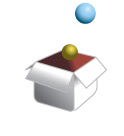Accessible Rich Internet Applications
Interactive web applications have taken off in recent years with the coming of AJAX and the increased popularity of dynamic HTML. David will look at how toolkits are building web widgets that go well beyond current HTML widgets, and the complications this creates for accessibility and inclusive design. ARIA (for Accessible Rich Internet Applications) is a new specification being developed at the W3C which allows developers to add semantics to their DOM based user interfaces. David will talk about how Dojo is leveraging this standard to make its widgets accessible, and will include a demonstration of how to add ARIA to a JavaScript based custom widget.
 | David Bolter, Accessibility Architect, ATRC, University of Toronto David creates accessibility solutions on the forefront of software technology. He is a GNOME module maintainer, a Mozilla patch contributor, and most recently, he has added Dojo JavaScript Toolkit accessibility to his activities. He has taught vocational programming courses but now enjoys mentoring and learning through online communities. A philosopher at heart, his academic background is in Artificial Intelligence and Cognitive Science. |
 | Simon Bates, Accessibility Architect, Adaptive Technology Resource Centre, University of Toronto Simon wrote his first web app in 1997 and has been building web infrastructure and applications pretty much continuously since then. He is passionate about innovation on the web and about making the web usable for everyone. Simon joined the University of Toronto in 2001 to work full time on accessibility and is currently focusing his energies on dynamic HTML accessibility and JavaScript. He is a committer on the Dojo Toolkit. |

